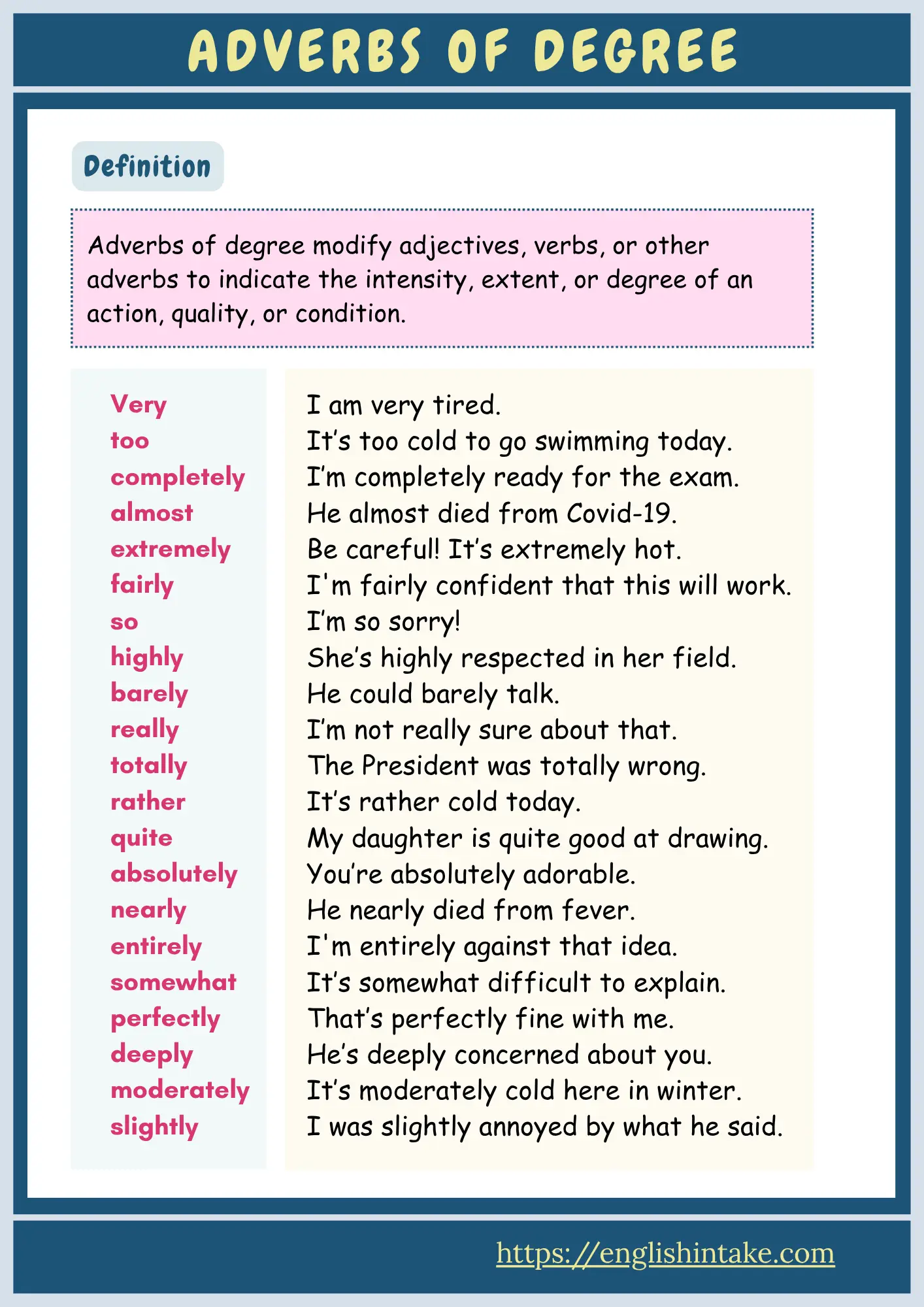1. What are adverbs of degree?
In English, adverbs of degree are words that modify adjectives, verbs, or other adverbs to indicate the intensity, extent, or degree of an action, quality, or condition. They help to answer questions like "How much?" or "To what extent?".
2. Examples of adverbs of degree in sentences
Adverbs of degree show how much or how little something happens. They help to make the meaning of a sentence stronger or weaker. They tell us the level or intensity of something.
- He is absolutely certain about the results.
- The room is quite spacious compared to the others.
- She barely noticed the change in schedule.
- This task is nearly finished.
- They are completely unaware of the consequences.
- The explanation was clearly misunderstood.
- The cake is fairly easy to make at home.
- The student was extremely nervous before the exam.
- We hardly see them these days.
- The team was totally unprepared for the challenge.
3. List of common adverbs of degree
Adverbs of degree can be divided into different categories based on the degree they express The following table shows common adverbs of degree grouped by how much or how little they describe something.
| Degree | Adverbs | Example sentences |
|---|---|---|
| Low |
|
|
| Moderate |
|
|
| High |
|
|
| Extreme |
|
|
| Near completeness |
|
|
| Certainty and emphasis |
|
|
4. Using 'enough' as an adverb of degree
The word enough is commonly used as an adverb of degree to indicate "to the necessary degree" in a sentence. It comes after the adjective or adverb it modifies.
- Is the soup warm enough?
- The room isn’t big enough for all of us.
- She didn’t study hard enough for the exam.
- If we leave early enough, we’ll catch the train.
- The music isn't loud enough.
We can use enough followed by "to" + the infinitive to show purpose or result.
- She’s strong enough to lift the box.
- The water is warm enough to swim.
- He’s tall enough to reach the shelf.
- The cake is sweet enough to satisfy anyone.
- The car is fast enough to win the race.
5. Using 'too' as an adverb of degree
The word too can be used as an adverb of degree to show that something is more than necessary, more than wanted, or more than expected. It often carries a negative meaning because it suggests that there is a problem or something is not good. Too can come before adjectives or adverbs in a sentence. When we say that something is "too hot", we mean that it is hotter than we want it to be or hotter than is comfortable or safe.
- The water is too cold to swim in.
- It’s too good to be true.
- This bag is too heavy to carry.
- The test was too hard for most students.
- She speaks too quietly for me to hear anything.
- It’s too late to change our plans now.
6. Exercise
1. Which adverb of degree shows a low amount or extent?
2. What does the adverb "too" suggest in this sentence: "This box is too heavy to lift"?
3. Choose the most suitable adverb of degree to complete the sentence: She was _______ tired to continue working.
4. Which of these adverbs expresses certainty?
5. In which sentence does the adverb of degree show a positive, strong intensity?

